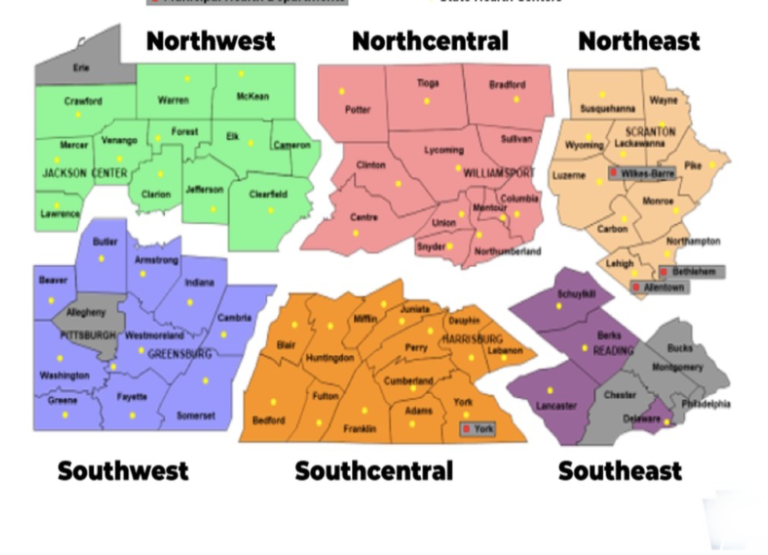Why the Need for a CCC Now?
The CCC was initially organized in 2023 to monitor the implementation of Pennsylvania Act 114 of 2022, which established the Pennsylvania Advisory Committee on Greater Father Involvement within the Joint State Government Commission (JSGC) and providing for its powers and duties. Governor Tom Wolf signed H.B. 1731, Printer’s Number 2953, on November 3, 2022, creating the Act.
Leaders within the CCC who have had lived experience, advocating for societal change, too often witnessed when said advocacy had been achieved or was adopted, the leading advocates (those with the most skill), more often than not, moved on to the next advocacy project, leaving in charge, those (whether a person or persons, an organization or institution) who had control of or is responsible for someone or something. In fact, the Strong Families Commission’s own experience has been, those in charge are often obligated to produce an episode of change that they may or may not even understand fully, what is being asked of them, thus, running the risk of changing the original intent of what was fought for and won.
It is in this context that THE COMMISSION dared the thought of abandoning eight years of public service organizing across the Commonwealth, to raise the consciousness of Pennsylvanians that fathers can make tremendous contributions to the well-being of children and families. THE COMMISSION after careful thought, realized that not only could it not do everything that needed to be done, but that in a democracy, citizens have a right to participate in the planning of government policies and state funded programming.
Both THE COMMISSION and the organizers of the CCC agreed that citizen involvement across the state was extremely important, especially, when shaping policies that would affect child and family well-being. They also acknowledged that engaging citizens to work with elected officials was a challenging task, as citizenship in a democracy requires active participation, civility, and even patience.
However, the parties were not put-off, building on the faith of Commonwealth citizens’ recognition that they not only had rights, but had responsibilities, as well. Leadership understood that democracy requires an investment of time and hard work, conflicting with the challenges that most citizens face – Yet, a government of the people demands constant vigilance and support by its citizens.
In short, most Americans are aware that they must bear the burden of responsibility for their society, if they are to benefit from its protection of their rights, as well as the rights of members of their family. In addition, there must be a reason why all of the 253 members of the Pennsylvania General Assembly, unanimously voted to establish a Pennsylvania Advisory Committee on Greater Father Involvement.
With this in mind, THE COMMISSION proceeded to file non-profit corporate papers with the Pennsylvania Department of State on April 1, 2024; install a Board of Directors on August 7th of 2024 to manage the affairs of the corporation; and on August 27th 2024, the CCC received its notification from the Federal Government that it had been approved as a 501 (c)(3) Federal Tax-Exempt Organization.
The answer to the question, why the need for a Commonwealth Citizens Council now? Evidence has shown that many local and state government leaders (elected or appointed) have been and are ready to move fatherhood forward.
Who are we, not to join forces with our government leaders, to help empower fathers to strengthen the well-being of children and families across the Commonwealth?
CCC’s Goals and Objectives
The CCC’s Goals and Objectives will guide the work needed to be done by the organization over the next five to six years, beginning January 2025.
The CCC’s on-going Goals include:
- Continuing to raise the consciousness of Pennsylvanians, county by county, one person at a time, if necessary, documenting that fathers can make tremendous contributions to the well-being of children and families.
- Encouraging each branch of Pennsylvania’s state government to adopt and institutionalize a father-inclusive posture toward men within families, and to support the active participation of fathers in Commonwealth child and family programming.
CCC’s Objectives by Timetable:
- 2025 – Continue meeting with Executive Committee Members of the Pennsylvania Joint State Government Commission to assist in defining a permanent location for Pennsylvania’s Commission on Greater Father Family Involvement, and the resources required to support it.
- 2025 – Continue to build direct working relationships with all three branches of Pennsylvania state government entities. Currently, CCC’s management team enjoys a close working relationships with members of the Pennsylvania General Assembly. The objective going forward is to establish a working relationship with the Governor’s Office, and the Pennsylvania Supreme Court’s Administrative Office of Pennsylvania Courts (AOPC).
- 2025 – Appeal to the Governor and General Assembly to establish a Statewide Office to promote greater father involvement in the life of children, families, and communities, with regional service centers devoted to men; many of whom may be fathers and want to become better parents and significant contributors to their family’s economic health and well-being. The goal of the Office and its Regional Service Centers would be to meet the common challenges faced by all fathers and families throughout the commonwealth, notwithstanding family heritage, race, ethnicity, income, education, health status, geographic location, and or lifestyle.

- 2026 – Establish formal relationships with state and local governments, and other entities through collaboration, coordination, research, and consultation to recognize and promote the contributions that fathers make to improving societal outcomes for children and families.
- 2027 – Participate, where possible, in the evaluation of government programs and initiatives that impact fatherhood, make recommendations regarding needed improvements, and identify existing or anticipated impediments to the successful implementation of those programs and initiatives that reduce the likelihood of greater father involvement.
- 2028-2029 – Propose changes where needed to Pennsylvania Statutes, Regulations, Administrative Rules, and Policies that impede the development or implementation of greater father involvement measures or that will enhance the prospect of success of those measures.
- 2030 – Last but not least, Pennsylvania becomes recognized as the United States of America’s most comprehensive Father Friendly Service Provider in the Nation.

Dr. Rufus Sylvester Lynch, ACSW
50 E. Wynnewood Road, U.S. Box 52
Wynnewood, Pennsylvania, 19096
Office: 215-879-1745
Mobile: 215-292-3311
E-Mail: drrslynchtsfc@iawfpa.com
E-Mail: drrslynch@outlook.com
© 2025 The Commonwealth Citizens Council. All Rights Reserved
